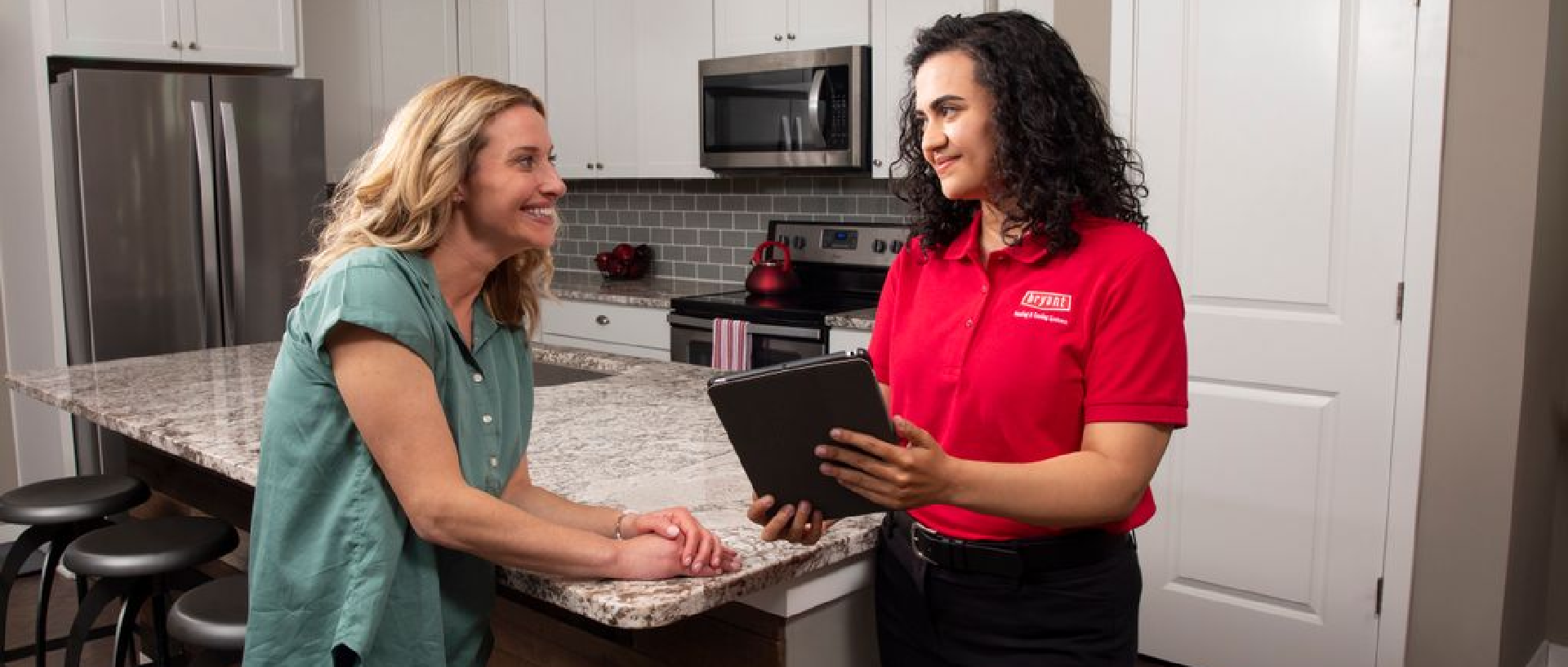TIPS FOR OPTIMIZING YOUR HVAC SYSTEM
Welcome to AireStream Aire & Heat Co.'s HVAC Tips page! Here, you'll find expert advice to help you keep your heating and cooling system running smoothly, save on energy costs, and avoid expensive repairs. Check back often for updates as we add more valuable tips over time.
Latest Tips
(Stay up to date with the newest advice for keeping your HVAC system in top condition.)
1. Monitor Your Thermostat to Understand Your System
-
 Why It’s Important: Monitoring your thermostat helps you understand how well your HVAC system operates during extreme weather conditions. This knowledge allows you to detect potential problems early.
Why It’s Important: Monitoring your thermostat helps you understand how well your HVAC system operates during extreme weather conditions. This knowledge allows you to detect potential problems early. -
 What to Do:
What to Do:-
In the summer, when temperatures hit their peak (e.g.,95°F-105°F) , log how your system performs:
-
Can it maintain the set temperature?
-
Does the thermostat consistently meet the desired temperature, or does it lag?
-
In the winter, do the same for heating mode. Track if the system reaches your desired set point during freezing weather.
-
-
 How This Helps: If your system starts struggling in similar conditions in the future, you’ll know it’s time to call a technician because you’ve logged the data showing past performance.
How This Helps: If your system starts struggling in similar conditions in the future, you’ll know it’s time to call a technician because you’ve logged the data showing past performance.
2. Maintain Clean Air Filters for Optimal Performance
-
 Why It’s Important: Dirty air filters restrict airflow, causing your system to work harder, which leads to higher energy costs and potential damage.
Why It’s Important: Dirty air filters restrict airflow, causing your system to work harder, which leads to higher energy costs and potential damage. -
 Cooling Mode Consequences:
Cooling Mode Consequences:-
Restricted airflow can cause the evaporator coil to freeze, reducing cooling efficiency.
-
-
 Heating Mode Consequences:
Heating Mode Consequences:-
Dirty filters reduce airflow over the heat exchanger, potentially causing overheating and safety shutdowns.
-
-
 What to Do:
What to Do:-
Check your air filters monthly and replace them as needed (at least every 1-3 months, depending on use and filter type).
-
3. Ensure Proper Refrigerant Levels
-
 Why It’s Important: Refrigerant is crucial for your HVAC system to transfer heat effectively. Low refrigerant levels can result in poor cooling, reduced efficiency, and long-term damage to your system.
Why It’s Important: Refrigerant is crucial for your HVAC system to transfer heat effectively. Low refrigerant levels can result in poor cooling, reduced efficiency, and long-term damage to your system. -
 Signs of Low Refrigerant:
Signs of Low Refrigerant:-
Warm air blowing from vents in cooling mode.
-
Ice forming on the refrigerant lines or coils.
-
Higher energy bills for reduced performance.
-
-
 What to Do: Only a licensed technician can check and recharge refrigerant levels. Schedule regular maintenance to ensure levels are correct.
What to Do: Only a licensed technician can check and recharge refrigerant levels. Schedule regular maintenance to ensure levels are correct.
4. Schedule Regular Maintenance Checks
-
 Why It’s Important: Routine maintenance helps prevent costly breakdowns and extends the lifespan of your system.
Why It’s Important: Routine maintenance helps prevent costly breakdowns and extends the lifespan of your system. -
 What to Do:
What to Do:-
Schedule professional maintenance at least twice a year—once before the cooling season and once before the heating season.
-
5. Optimize Airflow in Your Home
-
 Why It’s Important: Good airflow ensures that your HVAC system operates efficiently and your home stays comfortable.
Why It’s Important: Good airflow ensures that your HVAC system operates efficiently and your home stays comfortable. -
 What to Do:
What to Do:-
Keep vents and registers clear of obstructions like furniture or rugs.
-
Use ceiling fans to circulate air more effectively, reducing the load on your HVAC system.
-
Future Updates Stay tuned! We’ll be adding more HVAC tips regularly to help you maintain your system and keep your home comfortable all year round.

